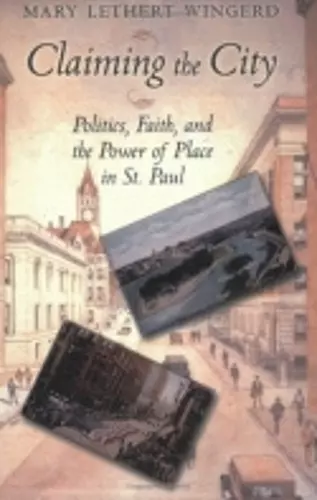Claiming the City
Politics, Faith, and the Power of Place in St. Paul
Format:Hardback
Publisher:Cornell University Press
Published:21st Aug '01
Currently unavailable, and unfortunately no date known when it will be back
This hardback is available in another edition too:
- Paperback£24.99(9780801488856)

Are Minneapolis and St. Paul "Twin Cities" in proximity only? How can two cities, spoken of so often in one breath, differ so greatly in their histories and characteristics? Claiming the City traces the contours of St. Paul's "civic identity" to show how personal identities and political structures of power are fundamentally informed by the social geography of place. St. Paul proves a particularly fruitful site for such analysis because it has developed along a divergent path from that of Minneapolis, its sister city just across the Mississippi river.
While Minneapolis in the last part of the nineteenth century bore the stamp of Scandinavians, Protestants, and Republican Yankee progressives, St. Paul emerged as an Irish, Catholic, Democratic stronghold. Increasingly overshadowed by the economic might of Minneapolis, out of necessity St. Paul evolved complex alliances among business, labor, and the Catholic Church that cut across class and ethnic lines—a culture of compromise that sharply contrasted with Minneapolis' more strident labor politics.
Mary Lethert Wingerd brings together the voices of citizens and workers and the power dynamics of civic leaders including James J. Hill and Archbishop John Ireland. She crafts a portrait of St. Paul remarkable for its specificity as well as its relevance to broader interpretations of place-based culture and politics.
Wingerd's rich and lively history of St. Paul is a clear demonstration that place—the lived experience and memory located in a specific spatial context—is a constitutive element of all other aspects of identity.
Claiming the City offers a complex and subtle account of how culture and power interacted with locality to generate St. Paul Minnesota's characteristic identity and distinguish it from its purported twin, Minneapolis. Historian Mary Lethert Wingerd shows how the geographical and social boundaries of place provide a context for actions, and, when understood reflexively by residents, direct action as well. In St. Paul, a tradition developed of solving problems internally, relying on a civic compact that acknowledged the contributions of a diverse population and that shared rewards in a relatively egalitarian manner.
-- Krista E. Paulsen, University of North Florida * American Journal of Sociology *Offers a compelling case for including place and religion as key categories for understanding political developments.
* ChoiISBN: 9780801439360
Dimensions: 235mm x 155mm x 27mm
Weight: 907g
352 pages